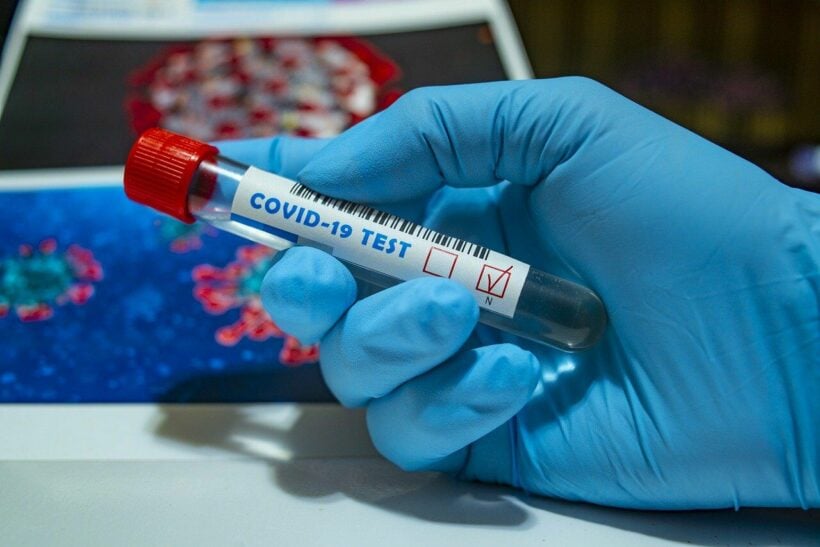Health officials advise on how to handle Covid-19 risk

Health authorities in Thailand are seeking a balance between testing at-risk people for Covid-19 and keeping the public calm in the face of a growing pandemic. While those who have been in contact or close proximity with Covid-infected patients need to be tested, many people are becoming hypochondriacs, fearing every symptom or ailment, from a simple cold to a headache, could be the dreaded Coronavirus. Health officials at the Disease Control Department have put together information to help people understand what the risks are, what you can do, when to get tested, and what to do if you test positive for Covid-19.
Anybody who has been nearby to any confirmed Covid-19 case should immediately seek testing. The highest risk is for people who live or work in the same place as the infected person and were present as the symptoms grew. Another high-risk scenario is anyone who came in contact with bodily fluids that were infected with the virus, usually via coughing or sneezing. Social distancing is important because being within a metre of a Covid-19 patient, especially unmasked, can be a risk, so even places like an aeroplane or a bus where you may be sitting nearby to an infected person are considered high risk.
Medical facilities such as hospitals also present a high risk for patients that may have been in a room with someone who was positive for covid, and medical workers who contact those patients or specimens without the appropriate protective gear.
Poor ventilation is another factor that creates a risky situation. Sharing a room or even a public space where there’s not proper air circulation only intensifies the possibility of infection, as is evidenced by the overwhelming amount of cases in Thailand’s Covid-19 third wave that were transmitted in poorly-vented bars and nightclubs throughout the country.
If you believe you’re at risk or have been exposed to the Covid-19 virus, you should get tested as quickly as possible while quarantining either by self-isolating in your home or at a medical facility if advised. Health officials warn that even if you were exposed to the virus but test negative, you should still isolate for 2 weeks as the results may not be conclusive. If you were exposed but the virus hasn’t taken hold yet, the people that you were in contact with during that time are most likely safe, but you still may end up infected and will be required to be tested several more times.
If after seeking medical attention you are determined to be low risk, it is still recommended to self-isolate for 2 weeks being very careful who you come in contact with. Health officials suggest you can still live your daily life but need to stay away from crowded places and take safety measures such as wearing a mask and social distancing.
People are advised that while private hospitals are charging a fee for Covid-19 tests, government-run state hospitals give free testing for any patient believed to be at risk. The National Health Security Office is helping ensure that those that should be tested are tested by covering the costs at private hospitals.
Those who do test positive can call special Covid-19 hotlines by dialling 1330, 1668, or 1669 where health authorities will provide further instructions. But during the waiting period between testing positive and being admitted to a hospital for treatment, it is essential to avoid leaving your home, keep yourself isolated, and wear a face mask at all times.
SOURCE: Thai PBS World
Latest Thailand News
Follow The Thaiger on Google News:


























